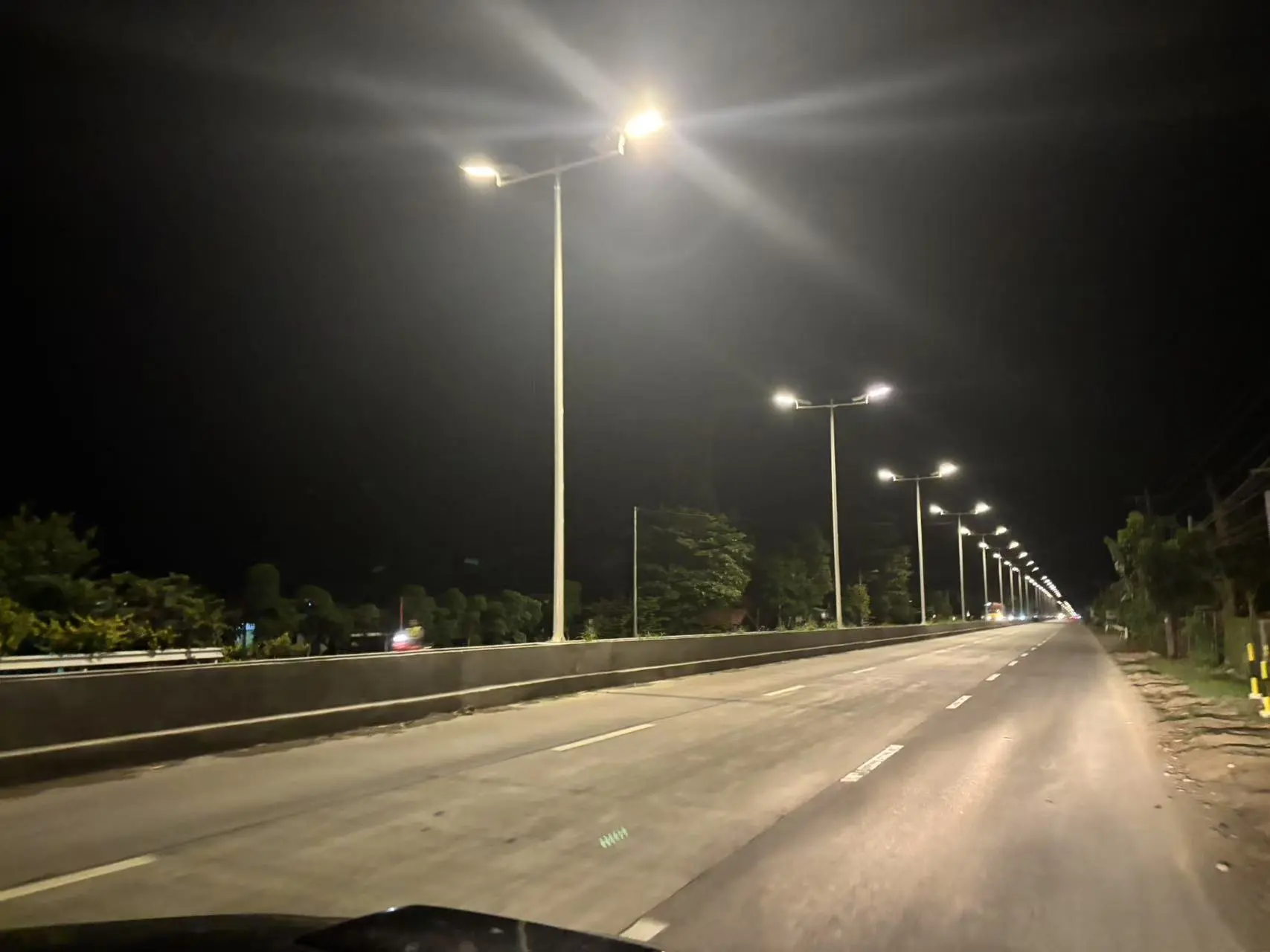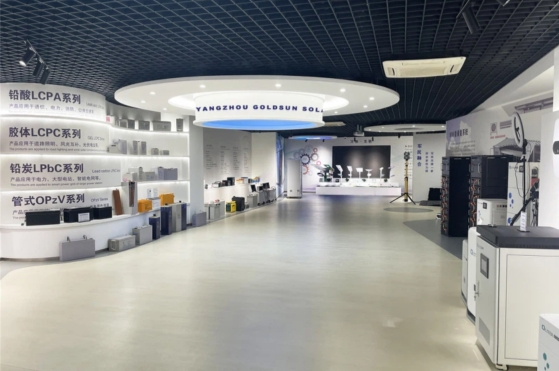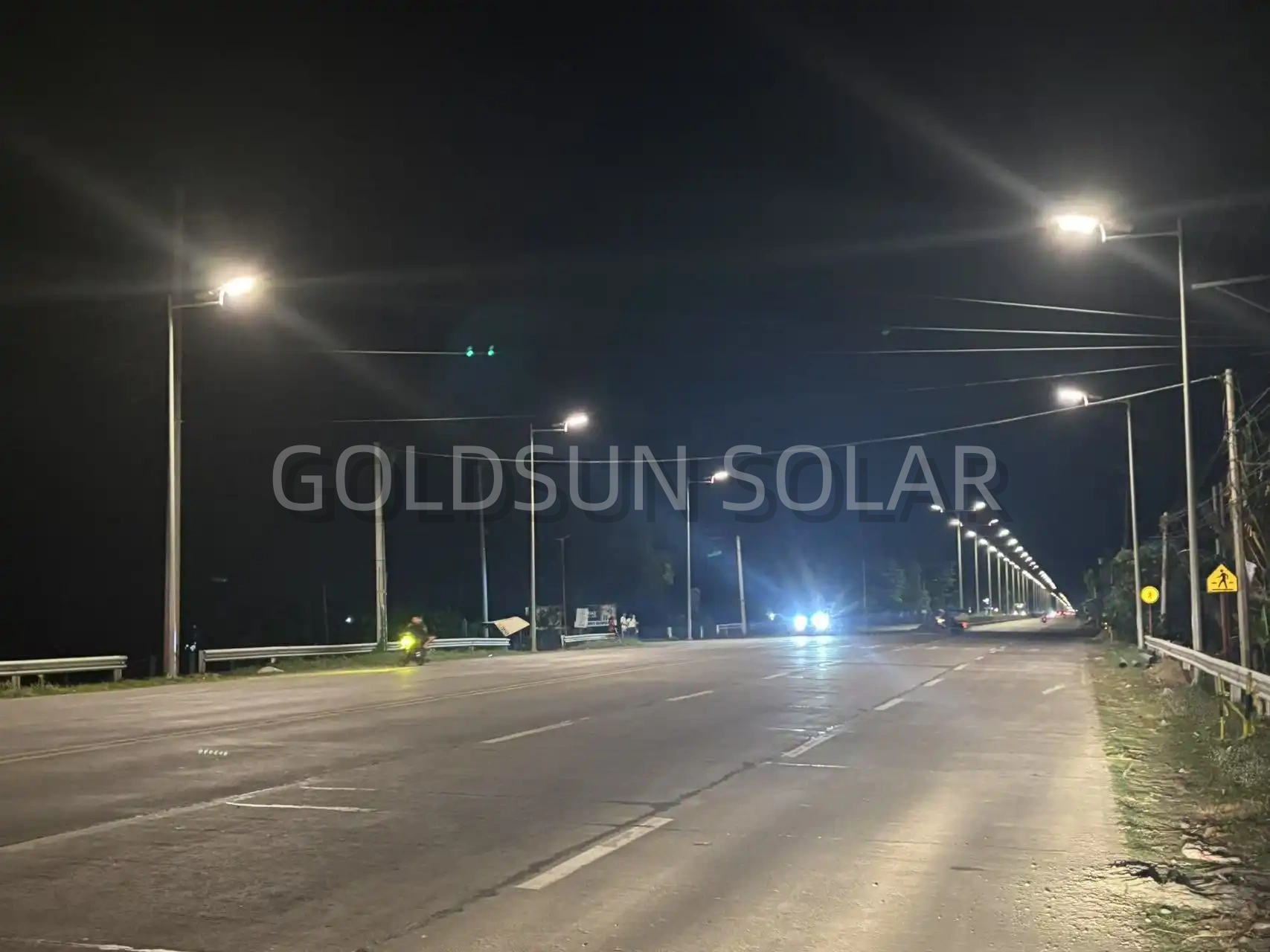Why IP67 Waterproof Rating Matters in Solar Street Lights?
Solar street lights have become increasingly popular in urban and rural areas due to their energy efficiency and eco-friendly nature. However, these outdoor lighting solutions face various environmental challenges, including exposure to rain, dust, and other harsh elements. This is where the IP67 waterproof rating comes into play. In this blog post, we'll explore why the IP67 waterproof rating is crucial for solar street lights and how it contributes to their longevity and performance.

What Does IP67 Waterproof Rating Mean for Solar Street Lights?
Understanding the IP67 Rating System
The IP67 rating is part of the Ingress Protection (IP) rating system, which indicates the level of protection a device has against solid objects and liquids. In the case of IP67, the "6" represents the highest level of protection against solid particles, including dust, while the "7" indicates protection against water immersion up to 1 meter for 30 minutes. For solar street lights, this rating is crucial as it ensures that the internal components are well-protected from environmental factors that could compromise their functionality. The IP67 rating provides peace of mind to municipalities and property owners investing in solar street light IP67 systems, knowing that their investment is built to withstand challenging outdoor conditions.
Benefits of IP67 Rating in Solar Street Lights
Solar street lights with an IP67 rating offer numerous advantages over their less protected counterparts. Firstly, they are completely dustproof, which is essential for maintaining the efficiency of solar panels and preventing damage to sensitive electronic components. This is particularly important in areas prone to dust storms or high pollution levels. Secondly, the waterproof nature of IP67-rated solar street lights ensures that rain, snow, and even temporary flooding won't compromise the internal circuitry or battery systems. This level of protection translates to increased reliability and reduced maintenance costs over the lifetime of the solar street light IP67 installation. Additionally, the robust sealing required for IP67 certification also helps prevent corrosion and degradation of internal components, further extending the lifespan of the solar street light.
How IP67 Rating Affects Solar Street Light Performance
The IP67 waterproof rating significantly impacts the overall performance and longevity of solar street lights. By effectively sealing out moisture and dust, IP67-rated fixtures maintain optimal operating conditions for their internal components. This results in more consistent light output, improved energy efficiency, and longer battery life. Solar street light IP67 systems are less likely to experience short circuits or electrical failures due to water ingress, ensuring uninterrupted operation even during severe weather events. Moreover, the protection offered by the IP67 rating helps maintain the clarity of LED lenses and the efficiency of solar panels, as they remain free from internal dust accumulation. This sustained performance not only enhances the reliability of the lighting system but also contributes to reduced maintenance frequency and costs, making IP67-rated solar street lights a smart choice for long-term outdoor lighting solutions.
How Does IP67 Protection Enhance the Durability of Solar Street Lights?
Impact of Weather Resistance on Lifespan
The IP67 waterproof rating plays a crucial role in enhancing the durability of solar street lights by providing superior weather resistance. This level of protection ensures that the internal components of the solar street light IP67 system remain dry and functional even in extreme weather conditions. Rain, snow, sleet, and high humidity are no match for properly sealed IP67-rated fixtures. This weather resistance significantly extends the lifespan of solar street lights, as it prevents water-related damage such as corrosion, short circuits, and degradation of electronic components. Furthermore, the dustproof nature of the IP67 rating helps maintain the efficiency of solar panels and prevents the accumulation of debris inside the light fixture, which could otherwise lead to overheating or reduced performance over time.
Protection Against Environmental Contaminants
IP67-rated solar street lights offer robust protection against a wide range of environmental contaminants that could potentially damage or degrade the lighting system. This includes not only dust and water but also other airborne particles, pollutants, and even small insects. The tight sealing required for IP67 certification ensures that these contaminants cannot penetrate the housing of the solar street light IP67 fixture. This level of protection is particularly important in industrial areas or coastal regions where salt spray and industrial pollutants can be especially corrosive. By keeping these harmful elements at bay, IP67-rated solar street lights maintain their structural integrity and functional efficiency for much longer periods, reducing the need for frequent replacements or repairs.
Long-term Cost Savings and Maintenance Benefits
Investing in solar street lights with an IP67 waterproof rating can lead to significant long-term cost savings and maintenance benefits. The enhanced durability and protection offered by IP67-rated fixtures translate to fewer breakdowns and a reduced need for repairs or replacements. This means lower maintenance costs over the lifetime of the solar street light IP67 installation. Additionally, the consistent performance ensured by the IP67 rating helps maintain the energy efficiency of the system, potentially leading to energy savings in the long run. Municipalities and organizations that opt for IP67-rated solar street lights can expect a higher return on investment due to the extended lifespan of the fixtures and reduced maintenance requirements. This makes IP67-rated solar street lights an economically sound choice for large-scale outdoor lighting projects, especially in areas with challenging environmental conditions.
What Are the Installation Considerations for IP67-Rated Solar Street Lights?
Proper Mounting and Sealing Techniques
When installing IP67-rated solar street lights, proper mounting and sealing techniques are crucial to maintain the integrity of the waterproof rating. Installers must ensure that all connections, including those between the solar panel, battery compartment, and light fixture, are properly sealed and tightened. This often involves using specialized gaskets, sealants, or compression fittings designed to maintain the IP67 rating. The mounting bracket or pole attachment point should also be carefully considered to prevent water ingress at these junctions. For solar street light IP67 systems, it's essential to follow manufacturer guidelines precisely, as even small deviations in installation procedures can compromise the waterproof seal. Additionally, any holes drilled for wiring or mounting must be properly sealed to maintain the IP67 rating across the entire fixture.
Considerations for Different Environmental Conditions
While IP67-rated solar street lights are designed to withstand a wide range of environmental conditions, specific considerations should be made based on the installation location. In coastal areas, for example, additional measures may be necessary to protect against salt corrosion, such as using marine-grade stainless steel components or applying additional protective coatings. In areas prone to extreme temperature fluctuations, installers should ensure that the solar street light IP67 system can handle thermal expansion and contraction without compromising its seal. For locations with high UV exposure, UV-resistant materials should be used for any external components not covered by the IP67 rating, such as mounting brackets or external wiring. It's also important to consider local wildlife and vegetation that might interact with the solar street light, ensuring that the installation location and height are optimized to minimize potential damage or interference.
Maintenance and Inspection Protocols
Even with the robust protection offered by an IP67 rating, regular maintenance and inspection protocols are essential to ensure the longevity and performance of solar street lights. These protocols should include periodic visual inspections to check for any signs of physical damage, water ingress, or seal degradation. Cleaning procedures should be established to remove dirt, dust, and debris from the solar panels and light fixtures without compromising the IP67 seal. For solar street light IP67 systems, it's important to verify that all gaskets and seals remain intact and functional over time, as these can degrade due to UV exposure or environmental factors. Any maintenance work that requires opening the sealed compartments should be performed by qualified technicians who can properly reseal the unit to maintain its IP67 rating. Additionally, electrical testing should be conducted regularly to ensure that the waterproof protection continues to safeguard the internal components effectively.
Conclusion
The IP67 waterproof rating is a crucial factor in the design and performance of solar street lights. It provides essential protection against environmental challenges, enhancing durability, reliability, and longevity. By investing in IP67-rated solar street lights, municipalities and property owners can ensure their lighting systems remain functional and efficient in various weather conditions, reducing maintenance costs and improving overall performance. As solar technology continues to advance, the importance of robust environmental protection like the IP67 rating will only grow, making it a key consideration for anyone looking to implement sustainable outdoor lighting solutions.
Yangzhou Goldsun Solar Energy Co., Ltd. specializes in solar street lights, offering an impressive production capacity of 10,000-13,500 sets annually. With ISO9001 certification and products meeting CE, RoHS, SGS, and IEC 62133 standards, we have a global presence, having installed over 500 projects in 100+ countries, including UNDP, UNOPS, and IOM. Our solar lights are backed by a 5-year warranty, and we offer customized solutions with OEM support. We ensure fast delivery and secure packaging. Contact us at solar@gdsolarlight.com for inquiries.
References
- International Electrotechnical Commission. (2013). IEC 60529:1989+AMD1:1999+AMD2:2013 CSV Consolidated version: Degrees of protection provided by enclosures (IP Code).
- Lighting Research Center. (2020). Street and Roadway Lighting. Rensselaer Polytechnic Institute.
- U.S. Department of Energy. (2021). Solar Lighting. Office of Energy Efficiency & Renewable Energy.
- International Dark-Sky Association. (2019). Outdoor Lighting Basics. IDA Practical Guide 1.
- American National Standards Institute. (2016). ANSI C136.37-2011 (R2016): American National Standard for Roadway and Area Lighting Equipment - Solid State Light Sources Used in Roadway and Area Lighting.
- World Bank Group. (2018). Lighting Global Quality Standards. Technical Notes Issue 22.

Share your inquiry, and receive a tailored quotation!

Yangzhou Goldsun Solar Energy Co.,Ltd.
